Old Testament
Genesis Exodus Leviticus Numbers Deuteronomy Joshua Judges Ruth 1 Samuel 2 Samuel 1 Kings 2 Kings 1 Chronicles 2 Chronicles Ezra Nehemiah Esther Job Psalms Proverbs Ecclesiastes Song of Solomon Isaiah Jeremiah Lamentations Ezekiel Daniel Hosea Joel Amos Obadiah Jonah Micah Nahum Habakkuk Zephaniah Haggai Zechariah MalachiAmos 3:10 Similar Verses
Amos 3:10 Cross References
For they know not to do right, saith the LORD, who store up violence and robbery in their palaces.
Uncover the Rich Themes and Topics of This Bible Verse
Listed below are the Bible themes associated with Amos 3:10. We invite you to explore each theme to gain deeper insights into the Scriptures.
Amos 3:10 Cross Reference Verses
This section features a detailed cross-reference designed to enrich your understanding of the Scriptures. Below, you will find carefully selected verses that echo the themes and teachings related to Amos 3:10 KJV. Click on any image to explore detailed analyses of related Bible verses and uncover deeper theological insights.
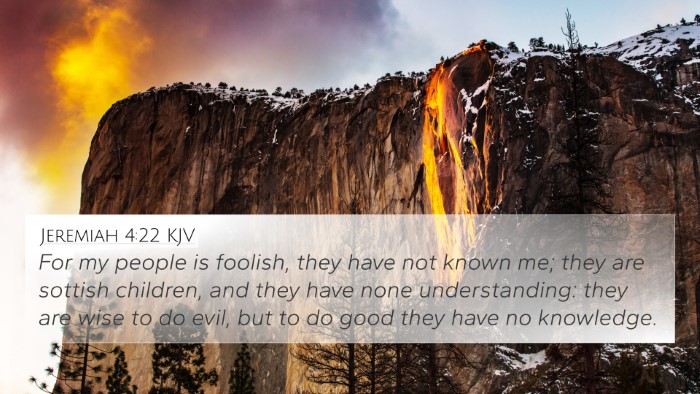
Jeremiah 4:22 (KJV) »
For my people is foolish, they have not known me; they are sottish children, and they have none understanding: they are wise to do evil, but to do good they have no knowledge.

Zephaniah 1:9 (KJV) »
In the same day also will I punish all those that leap on the threshold, which fill their masters' houses with violence and deceit.
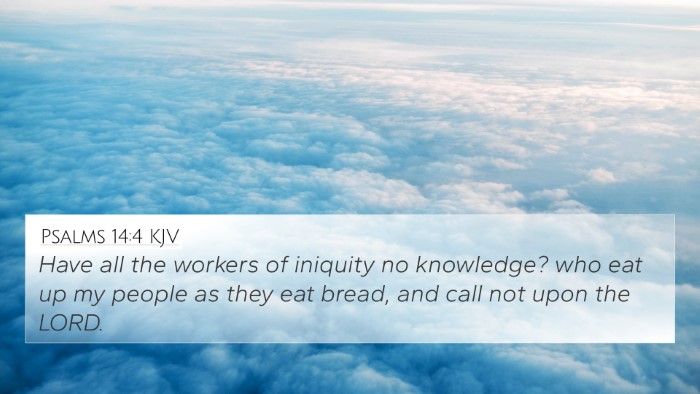
Psalms 14:4 (KJV) »
Have all the workers of iniquity no knowledge? who eat up my people as they eat bread, and call not upon the LORD.
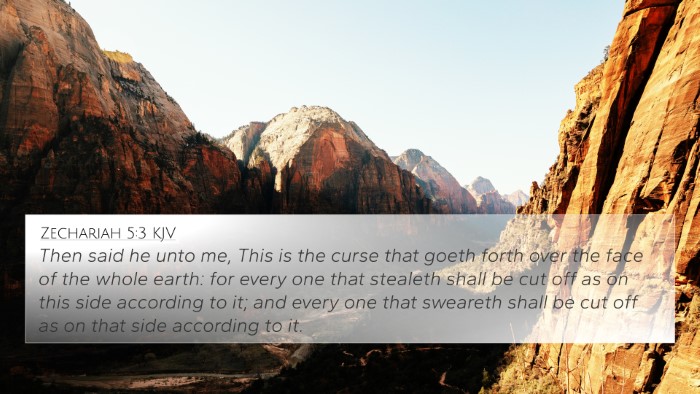
Zechariah 5:3 (KJV) »
Then said he unto me, This is the curse that goeth forth over the face of the whole earth: for every one that stealeth shall be cut off as on this side according to it; and every one that sweareth shall be cut off as on that side according to it.
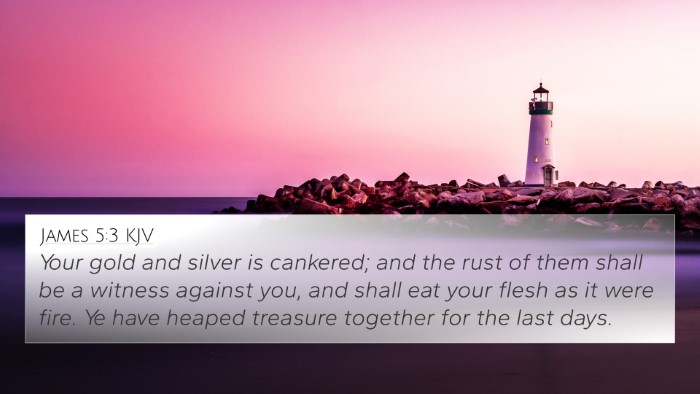
James 5:3 (KJV) »
Your gold and silver is cankered; and the rust of them shall be a witness against you, and shall eat your flesh as it were fire. Ye have heaped treasure together for the last days.

Habakkuk 2:8 (KJV) »
Because thou hast spoiled many nations, all the remnant of the people shall spoil thee; because of men's blood, and for the violence of the land, of the city, and of all that dwell therein.

Amos 6:12 (KJV) »
Shall horses run upon the rock? will one plow there with oxen? for ye have turned judgment into gall, and the fruit of righteousness into hemlock:
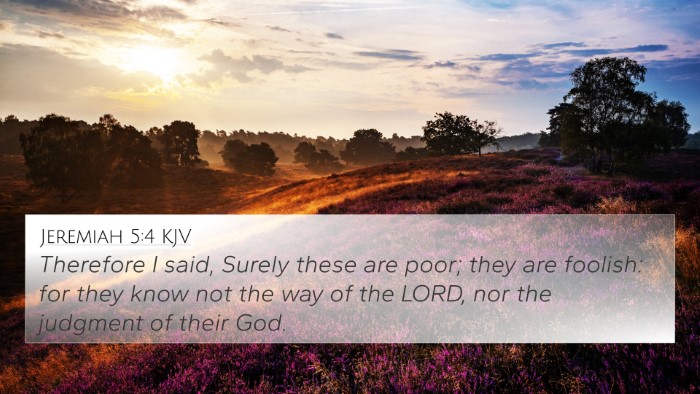
Jeremiah 5:4 (KJV) »
Therefore I said, Surely these are poor; they are foolish: for they know not the way of the LORD, nor the judgment of their God.
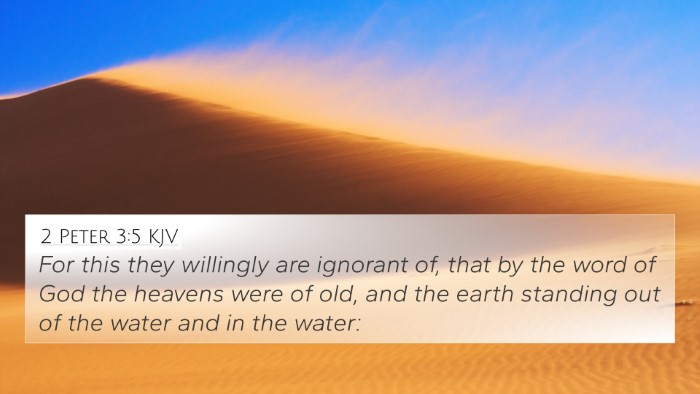
2 Peter 3:5 (KJV) »
For this they willingly are ignorant of, that by the word of God the heavens were of old, and the earth standing out of the water and in the water:
Amos 3:10 Verse Analysis and Similar Verses
Understanding Amos 3:10
Amos 3:10 states: "For they know not to do right, saith the Lord, who store up violence and robbery in their palaces." This verse highlights the consequences of sin and the lack of understanding of what is right among the people. In this commentary, we will explore the meaning of this verse considering insights from public domain commentaries, including those by Matthew Henry, Albert Barnes, and Adam Clarke.
Background and Context
The book of Amos is a prophetic book in the Old Testament that speaks against the sins of Israel, particularly during a time of prosperity and complacency. Amos, a shepherd, is called by God to deliver a message of judgment and warning. Understanding the historical context of Israel's disobedience during this period can help us grasp the weight of Amos 3:10.
Verse Analysis
1. Lack of Understanding
Matthew Henry emphasizes that the people do not know how to do right because they are blinded by their greed and violence. Their priorities are misaligned, leading them away from God's commandments.
2. Accumulation of Sin
Albert Barnes connects this verse with the idea that Israel has stored up sin like treasures in their palaces. Their illegal gains reflect a society that has embraced iniquity rather than righteousness, which leads to God’s impending judgment.
3. The Divine Perspective
Adam Clarke notes that God's perspective on human actions is crucial. He sees the actions of individuals and nations clearly, and this verse reveals God's discontent with their behavior. The use of 'palaces' indicates that the corruption is systemic and ingrained in the societal structures of Israel.
Thematic Connections
Amos 3:10 is not an isolated verse; it connects thematically with various other scriptures:
- Isaiah 59:7-8: Describes similar societal injustices and the failure to uphold righteousness.
- Jeremiah 6:13-14: Warns of leaders profiting from deceit and misleading the people.
- Micah 3:2-3: Accusations against the leaders who hate good and love evil.
- Ezekiel 18:30: A call for repentance from all the offenses committed.
- Romans 1:28-32: Addresses the consequences of lacking knowledge of righteousness resulting in immoral actions.
- Matthew 7:22-23: The warning of false prophets and those who do not know God despite their professions.
- Galatians 6:7: The principle of reaping what one sows, applicable to the actions of those who accumulate sin.
Application of Cross-References
Using these cross-references, we can explore the connections between various Biblical texts, highlighting the consistent message about the dire consequences of sin and the importance of realizing and adhering to God's standard of righteousness.
Practical Considerations
To effectively engage with themes found in Amos 3:10, one can utilize tools for Bible cross-referencing such as a Bible concordance or a Bible cross-reference guide. These resources can assist individuals in discovering and identifying links between prophetic literature and other Biblical writings.
Conclusion
The message of Amos 3:10 serves as a poignant reminder of the need for discernment and righteousness. By studying the connections between this and related Bible verses, believers can deepen their understanding of God’s expectations and the serious implications of moral failure.
As we reflect on these themes, let us seek to align ourselves with God's will and strive for justice and righteousness in our own lives.



